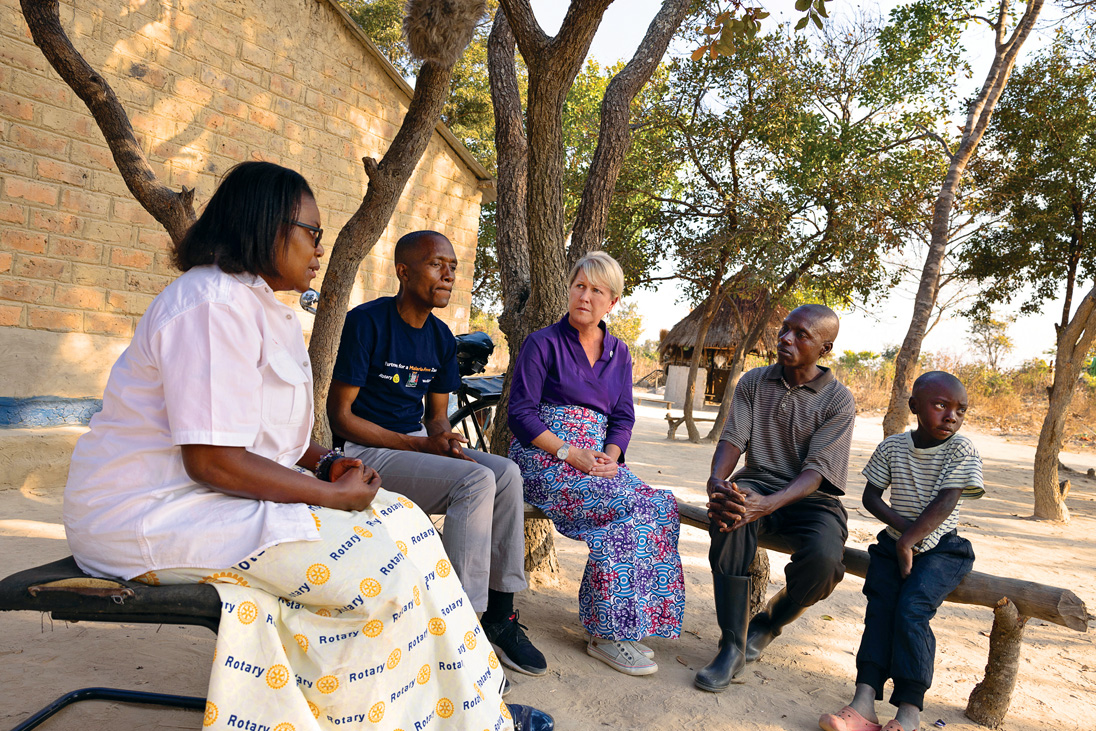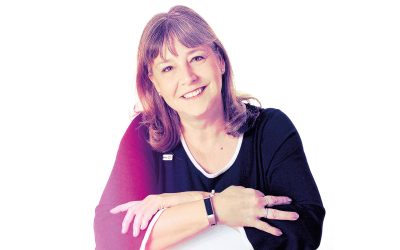While sitting with a group of Rotary leaders outside of Lusaka, Zambia, I ask a question: “How many of you have ever had malaria?” Every hand in the room goes up. They even begin to tell me about the first, second, or third time they experienced the disease, one of the main causes of death and sickness in many developing countries.
They are fortunate. They have access to medical treatment and lifesaving medicines. For the people of rural Zambia, their story is very different.
On a wooden bench in a small village, I sit with Timothy and his young son Nathan. With a camera crew capturing our conversation, he tells me of the time Nathan showed signs of malaria. He brought the boy to the nearby home of a community health worker, where Nathan quickly received medicines that saved his life.
Calmly, Timothy tells me about his other son’s bout with the disease a few years earlier. He had to race that son to a medical clinic more than five miles away.


Rotary President Jennifer Jones visits Zambia in August to showcase the work of Partners for a Malaria-Free Zambia
Riding a bike and carrying his child on his back, he tells me, he could feel his son’s legs turn cold and then his little body go limp.
As he finally entered the clinic, he screamed for help, but it was too late. The camera stops rolling, and we sit in silence. He begins to weep, and I hold him tightly. “I lost my son, I lost my son,” he says.
This story is all too familiar for the families we meet over the next few days. And yet there is hope.
Partners for a Malaria-Free Zambia is Rotary’s first Programmes of Scale grant recipient, and it is saving lives.
Across two provinces of Zambia, 2,500 volunteer health workers have been selected by their communities. They are trained to bring medical care closer to those who need it, and they are able to diagnose and treat malaria and other ailments.


























































